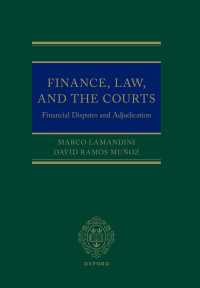Description
What makes us 'persons' in the moral sense, beings with a certain dignity and worth? Philosophers Nancy S. Jecker and Caesar A. Atuire explore this question by bringing African and Western philosophies into conversation. They start by characterizing the differences in the contemporary scene in Africa and the West, proposing that these differences were not always present, are hardly inevitable, and can and should be bridged. They then introduce the concept of Emergent Personhood, a new philosophy of personhood that combines insights from Africa and the West. It holds that beings with superlative worth emerge through social relational processes involving human beings, yet they are more than the sum of these relationships. Persons have an identity of their own and exhibit superlative moral worth, a remarkable feature not present at the base. Emergent Personhood justifies personhood for all human beings from birth to death. It also gives strong support to personhood for a wide range of animals, soils, rocks, and ecosystems. Focusing on human personhood, Jecker and Atuire argue that high moral status is stable across the lifespan and reaches a terminus with death's declaration, which ends the human-human associations that enable personhood to arise. They conclude with a turn to nonhuman personhood, considering personhood for artificial intelligence, animals, non-living nature, and extra-terrestrial life and lands.
Table of Contents
List of Illustrations List of Abbreviations Preface INTRODUCTION: Philosophy Across Borders PART I: HUMAN PERSONS Chapter 1. A Conversation Between Africa and the West 1.1 Introduction 1.2 Key Concepts 1.3 Contemporary African and Western Views 1.4 Precursors of Contemporary African and Western Views 1.5 Conclusion Chapter 2. Emergent Personhood 2.1 Introduction 2.2 Five Features 2.3 Emergent Personhood 2.4 Abortion 2.5 Conclusion Chapter 3. Personhood Across the Lifespan 3.1 Introduction 3.2 African and Early Greek Personhood Across the Lifespan 3.3 Contemporary Western Personhood Across the Lifespan 3.4 Emergent Personhood Across the Lifespan 3.5 Replies to Objections 3.6 Conclusion Chapter 4. Becoming a Non-Person 4.1 Introduction 4.2 The Death of Persons and Human Beings 4.3 Replies to Objections 4.4 Hastening Death 4.5 Conclusion PART II: NONHUMAN PERSONS Chapter 5. Zombies and Robots 5.1 Introduction 5.2 Are Zombies Persons? 5.3 Could Machines Be Persons? 5.4 Replies to Objections 5.5 Conclusion Chapter 6. Animals and Nature 6.1 Introduction 6.2 Animals 6.3 Non-Animal Nature 6.4 Replies to Objections 6.5 Conclusion Chapter 7. Space Aliens and Terraforming 7.1 Introduction 7.2 Space Aliens and Extraterrestrial Life 7.3 Terraforming Mars 7.4 Conclusion Epilogue Bibliography Name Index Subject Index








